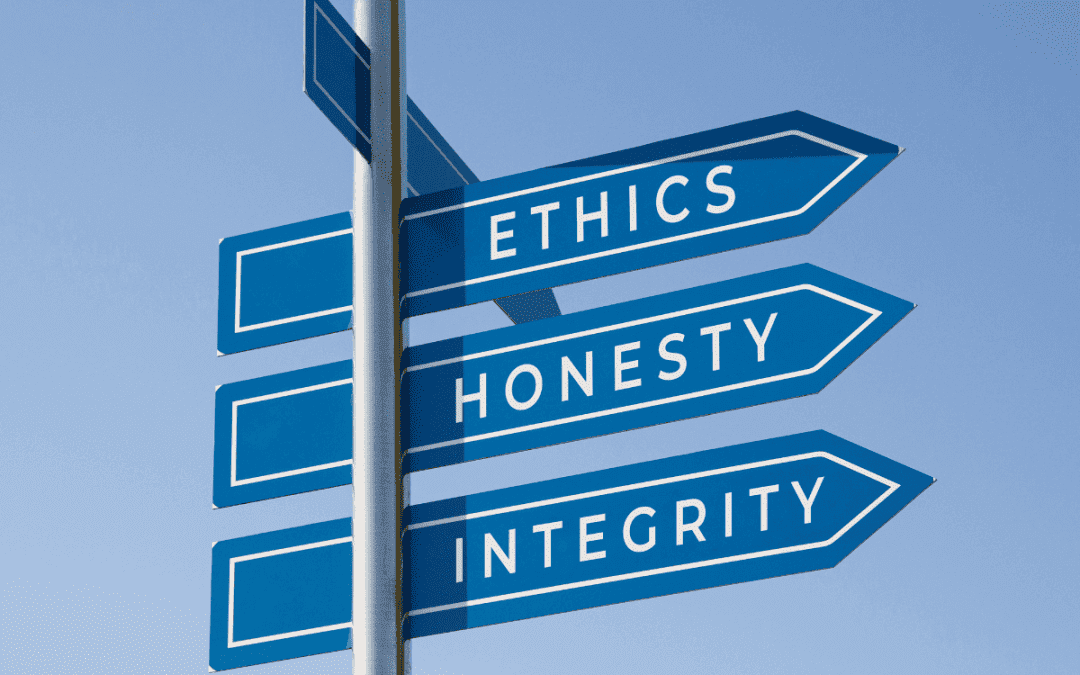I recently read a great article about why real estate agents breach their code of ethics. It appears in an American publication but is directly relevant to us in Canada.
So, why would a realtor breach their code of ethics? The author speculated about the causes and broke them down into two possibilities: ignorance of our code of ethics and insufficient enforcement.
I was largely in agreement with his views on these possible causes, but before I address them, I want to disagree with the major premise.
Ethical standards
The main premise was that, despite our codes of ethics, the public perception is there that we are not to be trusted and that even within our ranks, complaints about the lack of adherence to ethical standards are common.
The author did not state it directly but very directly implied there is a problem. I disagree with this premise, as perception is not always reality.
Thank you to the Real Estate Council of Alberta for providing me with the last year’s sanction statistics. A few cases remain open, but in all likelihood, the number of hearing outcomes totalled nine individuals between Oct. 1, 2021, and Sept. 30, 2022 (there were 33 administrative penalties and 43 letters of reprimand).
In 2022, the Realtors Association of Edmonton recorded some 24,000 transactions, while nearly 30,000 transactions were recorded in Calgary.
I contend that, by and large, realtors are highly ethical professionals and that our codes of ethics do make a difference. For the few bad apples that make their way in, we all have a duty to report them and to let our regulatory system weed the garden.
Enforcement and punishment
Okay, so back to the arguments about why real estate agents breach their code of ethics. The author dismissed the ignorance argument for most cases, and I agree with him.
But then he also dismissed the enforcement argument because enforcement is too cumbersome for the plaintiff and is not intended to punish. Rather, enforcement is to demonstrate that ethics are to be taken seriously and internalized, a sort of positive reinforcement.
I disagree with the first point and agree with the second.
I disagree that enforcement is not to punish, and I believe punishment needs to be one aspect of the consequences for an ethics breach. I researched deterrence with respect to crime, though it should apply directly to ethics violations as both involve breaking the rules and subsequent consequences.
The Economic Theory of Crime
Some researchers argue that punishment does not deter crime, but many argue it does, with the Economic Theory of Crime being a major theory.
The Economic Theory of Crime is basically an application of the theory of demand. In 1968, Nobel Laureate Gary Becker formalized the theory, which states that potential criminals are economically rational and respond significantly to the deterring incentives of the criminal justice system.
In a nutshell, in choosing to commit a crime, they weigh the costs and benefits. The probability and severity of punishment negatively affect crime rates, therefore reducing them.
For all but the irrational criminals, this makes complete sense to me, and some of the studies I found claimed that there is substantial empirical evidence to support this.
Internalize good ethics
My experience as an instructor for an industry ethics course bears this out. Reassuringly, most attendees in the course who are there because they have to be and not because they want to be, seem to understand they broke the rules and accept their consequences in a rather cheerful manner.
Still, there are always some who clearly demonstrate their discomfort with this part of their sanctions. This tells me deterrence has an effect.
But I agree that punishment should also have a positive component aimed at getting attendees to internalize good ethics. I try my best when instructing ethics to treat all attendees with respect and to demonstrate the joys of internalizing and exemplifying good ethics in our careers.
At the end of most classes, one or two attendees will pay me the greatest compliment, expressing their new outlook and newfound joy in internalizing good ethics in their practices.
This makes it all worthwhile.
I have met many great realtors in my years both as a realtor and as an instructor, and I contend the public is in good hands.
The article referenced in Gerald’s writing originally appeared in Realty Times on Jan. 15, 2023.

Gerald has been a licensed real estate agent for thirty years and an industry instructor for over twenty. He has served on several committees with the Realtors Association of Edmonton and on the Board of the Real Estate Institute of Canada (REIC) Edmonton chapter. He is also an ethics instructor for REIC nationally and enjoys family, various sports, and the outdoors. Check out his popular real estate podcast The Real World of Real Estate here.















I believe that lack of integrity and ethics are a serious concern in our industry and that enforcement is insufficient to alleviate the problem. In many cases enforcement, where it exists at all, is merely a “fine” or “tax” on ill-gotten gains.
Sadly, I believe the problem is much more widespread than in real estate and may simply be yet another example of where lack of accountability and personal responsibility has brought us. Where politicians and bureaucrats are not held accountable for even the most egregious errors, lies, boondogles and catastrophic financial failurues, then it is hard to expect individual taxpayers and citizens to behave better. Our leaders, like it or not, set an example; far too often, that example is not a good one. What have been the repurcussions for the leadership at RECO where the auditor general found MAJOR failings? Has anyone been fired? Likely not. How then can Realtors be expected to perform better than their regulator? Don’t like this example? Perhaps it hits too close to home.
We need to take personal responsibility more seriously and hold accountable those who fall short of the mark, ethically and legally. This is not true only in real estate but society in general.
It is most definitely a problem.
Firstly, ethics cannot be taught to adults. You either have them or you don’t.
The recent report by the Auditor General of Ontario on RECO, highlights numerous issues that hamper enforcement. In particular there were certain investigators who tend to drag out their cases then do little to nothing about them; there were hundreds of cases not reported for some unknown reason and hundreds other applicants who had some serious criminal convictions regarding fraud but whse registrations were just rubber stamped.
Probably the only worthwhile undercover story reported by the CBC within the last few years was the recent highlighting of the mortgage fraud and the prevalence of same. That’s serious ethical misconduct and in fact criminal, but those and other more egregious practices fly under the public reporting radar because they’re not reported on the website of any real estate council or association in sanction statistics as noted in this article, but through the court system which very consumers access much less regularly.
Then too they caught a bunch who were happy to trade in real estate by letting other persons take the courses for them – a problem that will surely only get worse with the advent of ChatGpt.
I have encountered way too many unethical agents in my almost 2 decades in this industry – at a guess I’d say one of every 4 is ethically challenged and 1 in 10 happy to break the law. In Ontario, RECO has helped to hinder the correction of the problems by sloughing off numerous complaints to the broker of record, well, that’s not going to go very far and secondly, their insistence that complainants cannot be anonymous creates one heck of a problem in an industry that is reliant on co-operation, so too many go unreportted. As well, I have come across a fair number of consumers who have legitimate complaints against an agent but are all too happy to just be over with the process to report them or belive it will go nowhere.
RECO is totally incompetent in dealing with fraudulent behaviour on the part of agents and brokers of record ignore the customer complaints and or are impotent in mitigating fraud committed by their agents. In my case the listing agent changed the commission agreed upon and forged my signature to make it look legal. They then withheld their scammed commission from the buyers deposit which was held in trust and returned the lesser amount on closing. RECO was involved in the complaint but didn’t do anything in terms of refunding the scammed money or punishing the perpetrators.